It’s that time of year again, the summer is coming to an end and all of those lovely solar rays (OK maybe not so much here in Ireland), have lead to plants being loaded with sugar and starch… every year we hit what I term ‘The Sugar Maximum’ where the crops of nature yield a plethora of fruits, cereals, root veg etc. loaded with sugar and starch.
These foods were the major seasonal variable in the stone-age diet. Fat and protein would have remained fairly constant, but sugar and starch were extremely volatile, especially in countries further away from the equator.
Check out the graph below…
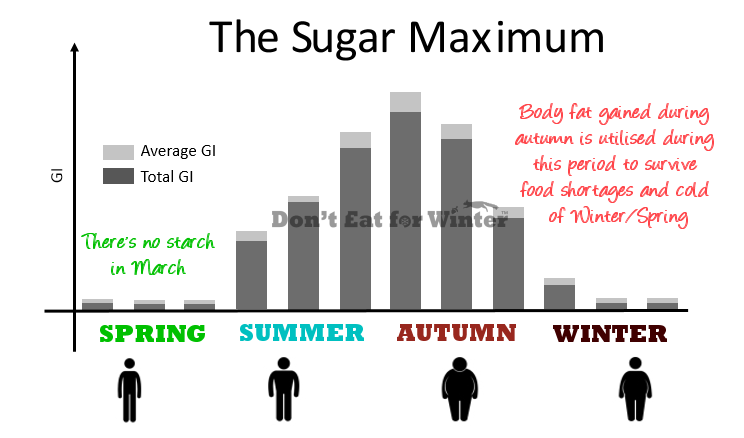
As you can see from the diagram, the sugar maximum peaks during late summer/autumn time, sometime in September according to my calculations but is yielding significantly now in August. In stone-age times it means bodies would have been loaded with sugar at this time of year priming it with insulin to put us unto ‘fat storage mode’ and also triggering the release of dopamine causing us to comfort eat / over eat. They also help us relax and become more lethargic according to some studies.
All of this is nature helping us to survive through the bleak winter winter ahead through promoting the storage of body-fat, which gave us a bit of extra backup energy and insulation to get us through the food shortages and cold of winter. Simples.
Obviously, this is not the same the world over, in countries where there are 4 crops of bananas a year for example, bodies adapted to deal with sugar better than than others.
Is there evidence of this? Possibly. Did you know that type 1 diabetes is more prevalent the further you go away from the equator? Type 1 diabetes is an auto-immune disease and could be caused by many factors, however seeing as sugar triggers insulin response and the pancreas releases insulin, it is possible that over-consumption of sugar by people who have evolved in areas where sugar was not available in large quantities all year around could be working outside of their design and so it could be a factor as to why it is on the increase. The body may see it as alien and attack the source. Scientists suggest it is lack of sunlight that may be a factor, but from a d3 deficiency perspective. It is solar related but doesn’t it make more sense that it is because of the unnatural amount of sugar/starch in our diets 24/7/365? This has been put forward in a study at University of Colorado and published in 2008. The western diet contains many times the amount of sugar our ancestors would have eaten, and it’s refined too, so this seems logical to me as by the time a child is 15 they would have eaten more sugar than a 60 year old stone-age person.
This over-consumption of sugar has led to 2/3 of people in many western countries, includign america, being now either overweight, obese or overfat. People have not suddenly changed, the environment has in a profound way with sugar/starch in both natural and refined forms available everywhere you go. In every shop we are bombarded with autumnal tasties and so it’s no wonder we are in trouble as a species. I call this ‘the infinite autumn‘ which is preparing bodies all over the world for a winter that never comes and so this is why we are in the mess we are in. There is no longer a sugar maximum, we are living in a state of constant sugar overload.
How do we solve it?
We were never designed to deal with this amount of sugar and using a sticky plaster of fixing it through pills and surgery will only prolong the problem. We need to get to the root of the problem and fix it once and for all. Sugar taxes are not the answer, but there has to be governmental and societal change if our future is to be healthy and bright. I personall escaped through changing diet. I could do over 50 push ups when I was 250+ lbs, I was active but could not lose the weight until I started eating a much lower carb diet. Lower carb diets are no longer a fad according to 23 Studies.
The low-fat/high-carb ethos is coming to an end, the ‘carbpocalypse’ is nigh, we now know it’s not the right answer to solve obesity and seems to have been a major contributor to the problem, and so we will continue to go through this ‘carbageddon’ unless we ditch the poor science that led to this era where the world is destroyed with health issues related to excess, unhealthy levels of body-fat.
If you’re struggling with weight, consider changing your diet to a more summer like diet with more protein and fat and moderate sugar and starch, maybe limiting to once or twice a day and see what happens.
This time of year should be the time where we get to enjoy a little more sugar in natural form and put on a little bit of weight for winter. Eating these foods is great, they taste amazing because nature is beguiling us into putting on weight to protect us, and are therefore part of our evolutionary heritage. They should be savoured and enjoyed and used for their correct purpose to gain a little weight for winter. If you are at an ideal, healthy weight you could consider putting up a kilo or two leading into winter through eating for winter but if you feel like you would like to lose weight then Don’t Eat for Winter. It isn’t necessary anymore with central heating and cosy pyjamas etc. but it is natural, come January we typically have all put up a little weight and then head into the new year with great resolutions, everything is cyclical, just like the seasons.
If you want to discover how I lost 90lbs and got into incredible shape at 41 you can order my new book ‘Don’t Eat for Winter’ here and discover the full background to the hypothesis, the problems we face as a society, a 101 on nutrition, human body energy systems, advice on exercise and The DEFoW Diet solution: a set of 10 guidelines on how to escape from the Infinite Autumn and become the Summer Hunter version of you! It is a sensible solution that is not ketogenic but works within the parameters of our design and also is cognissant of the new high-sugar environment we find ourselves living in.
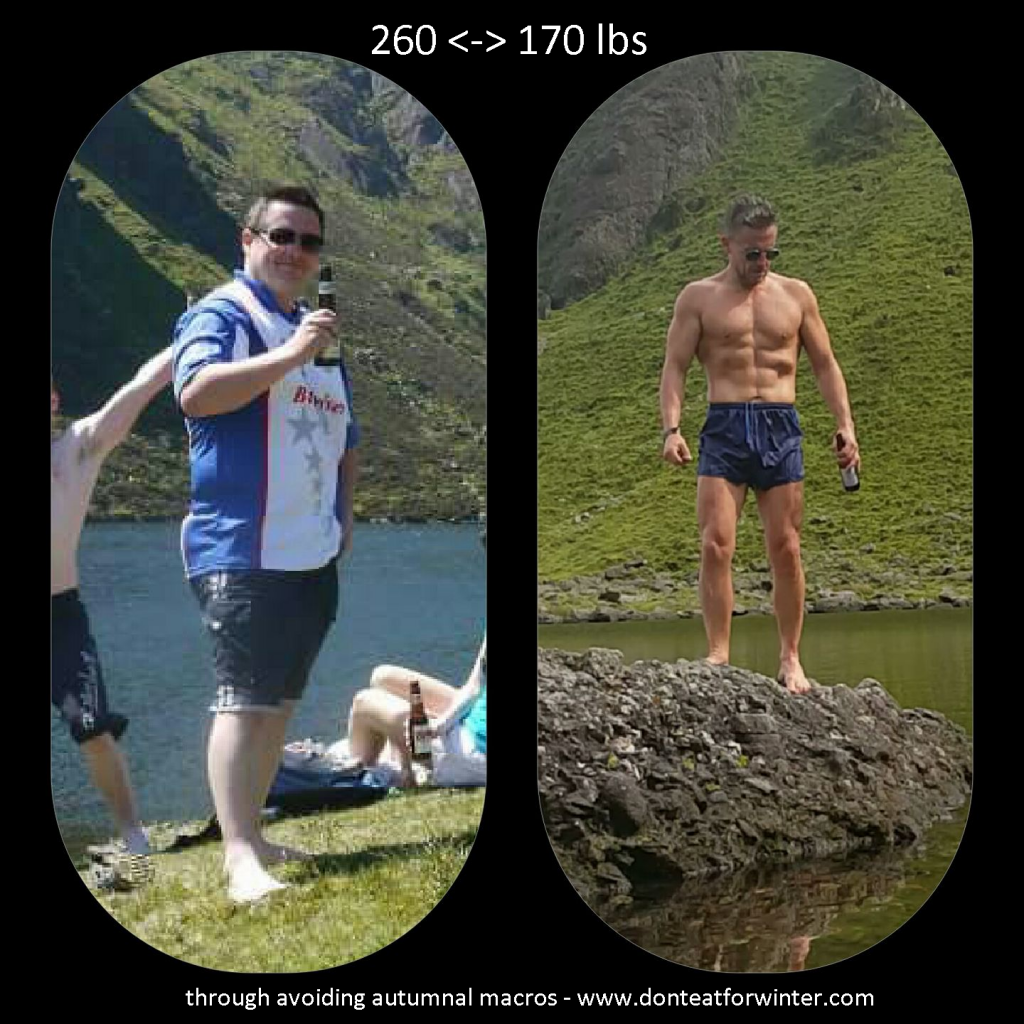
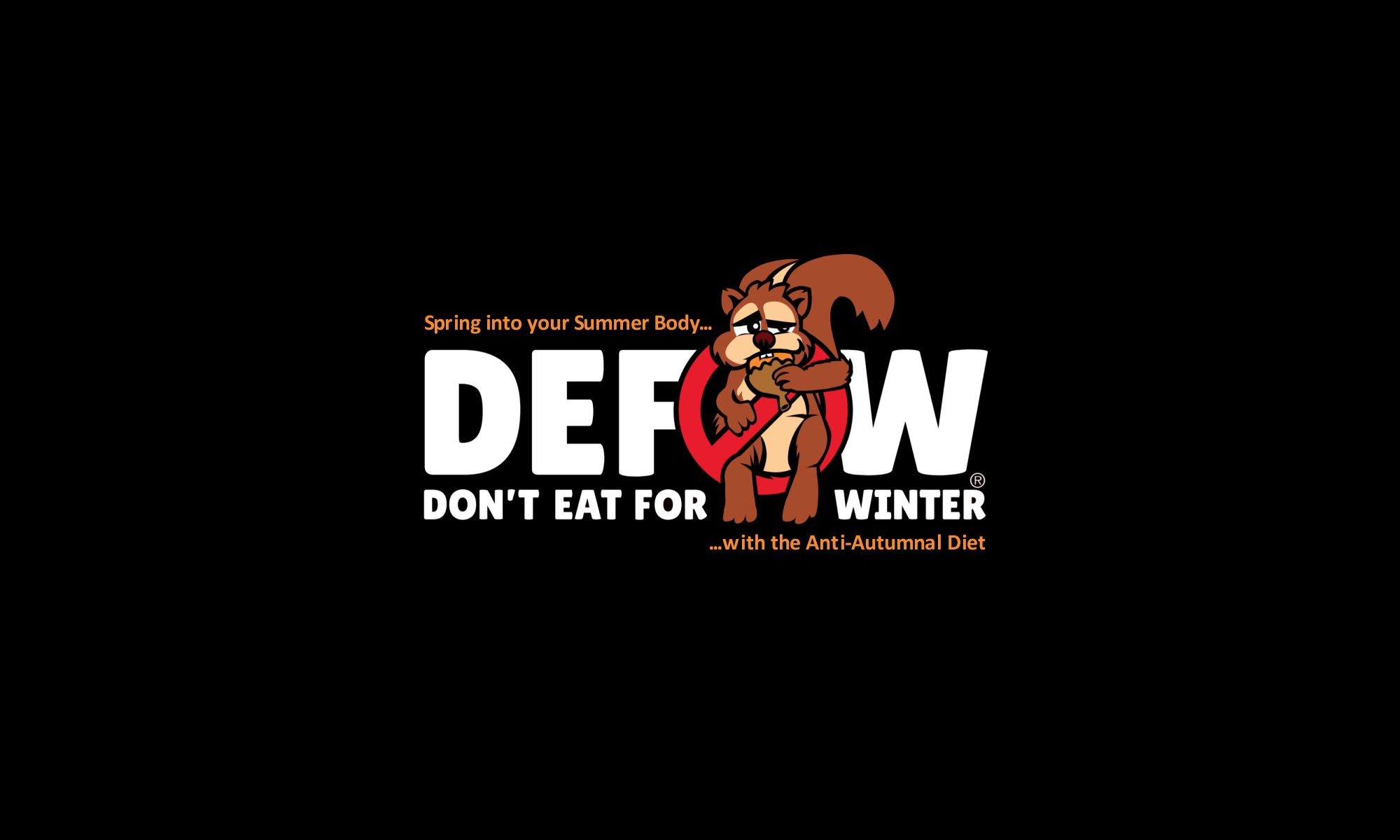
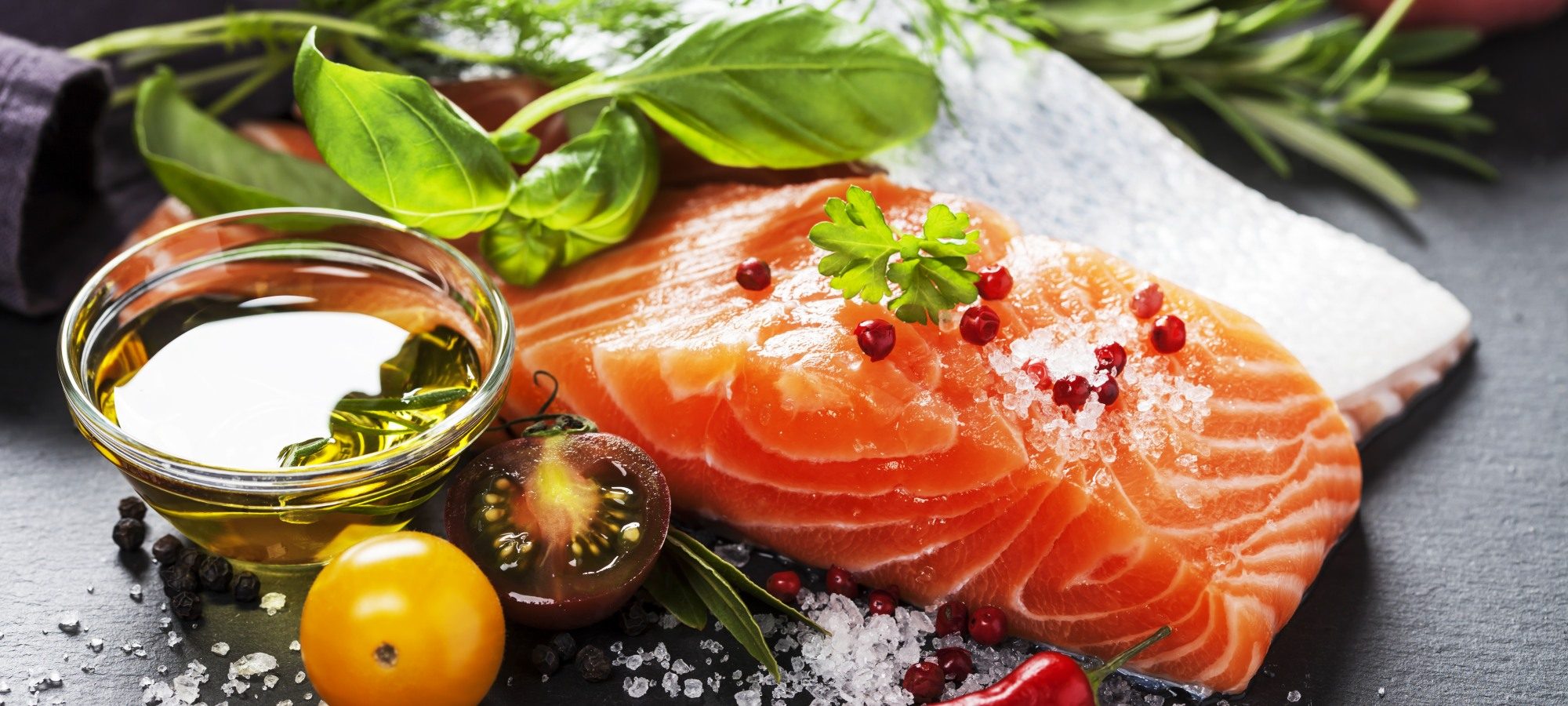
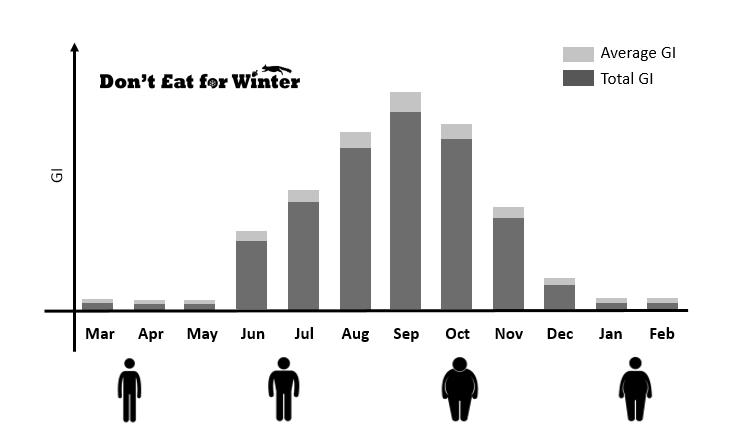
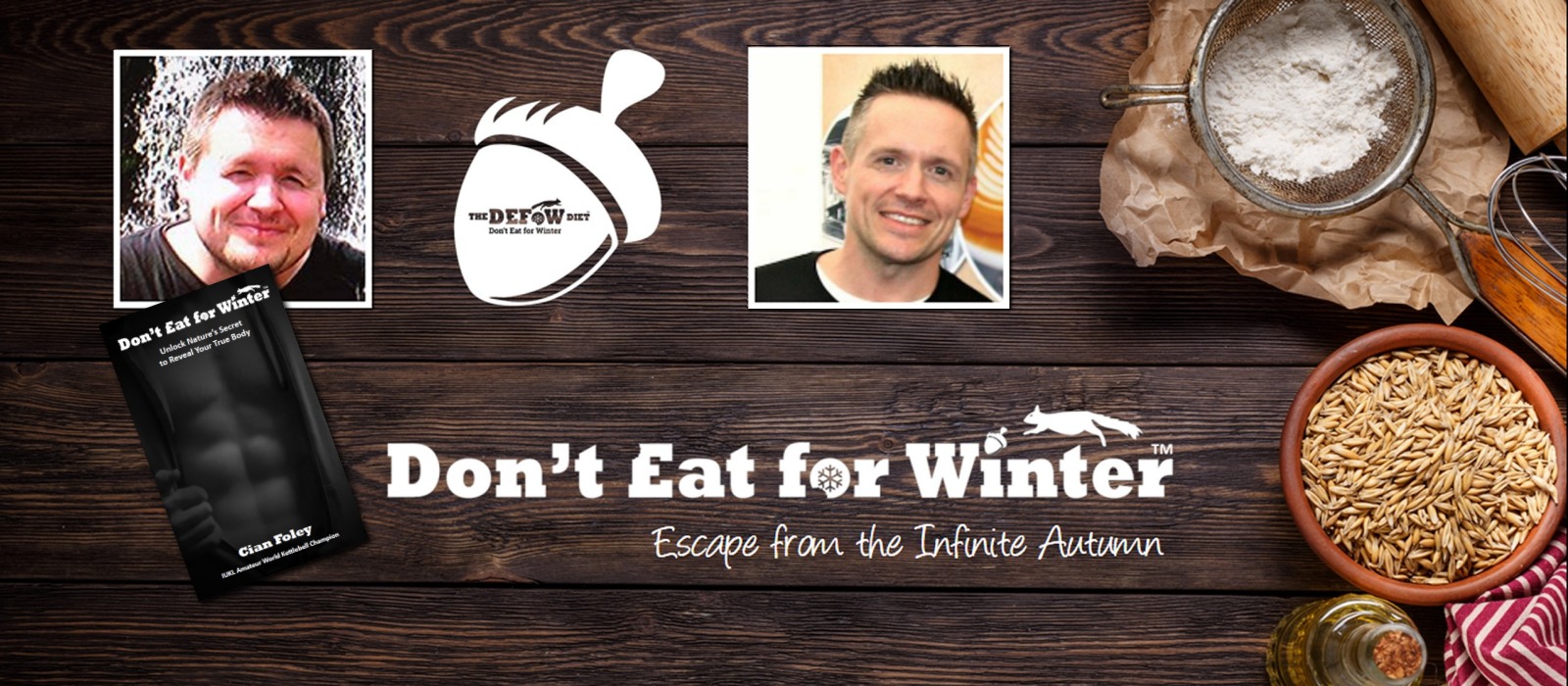


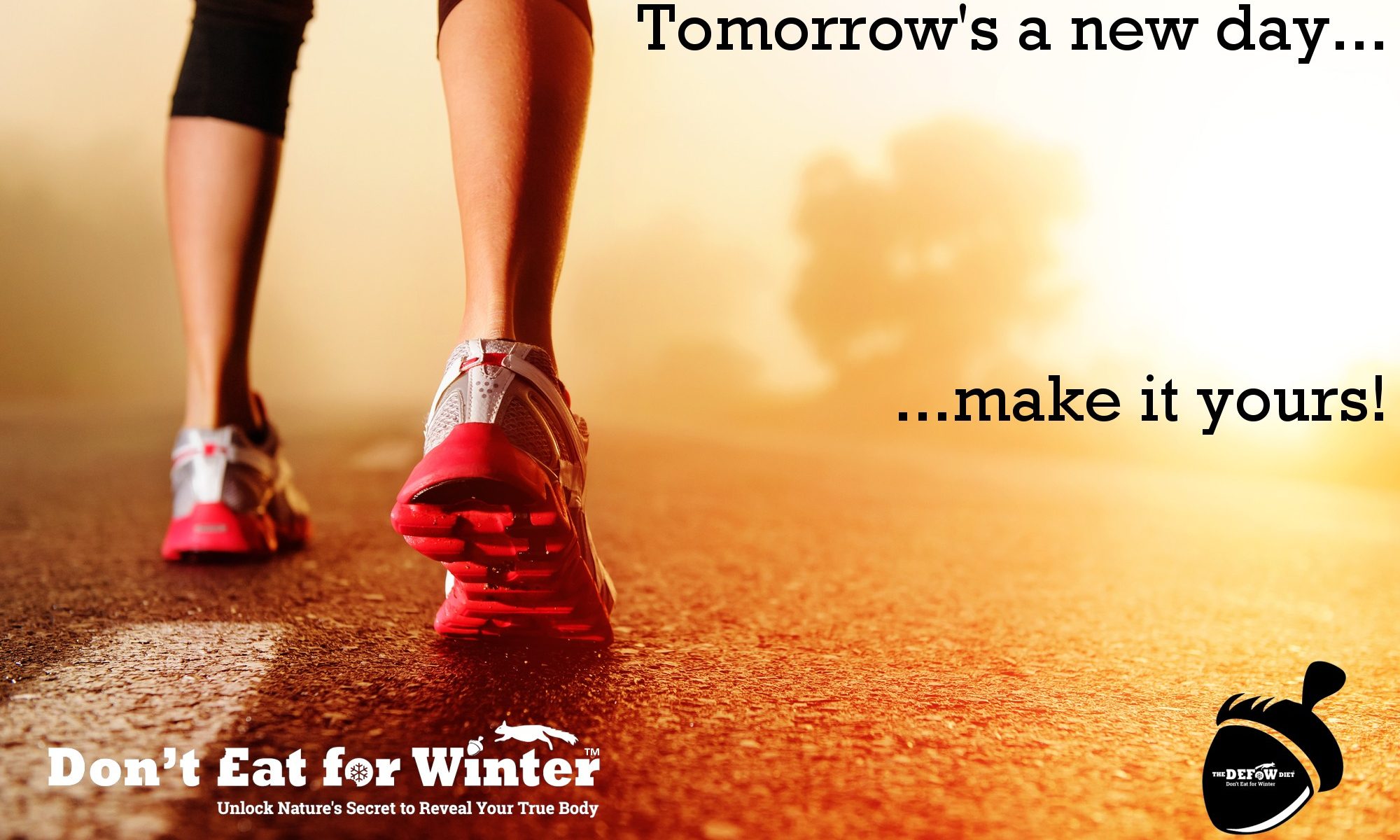
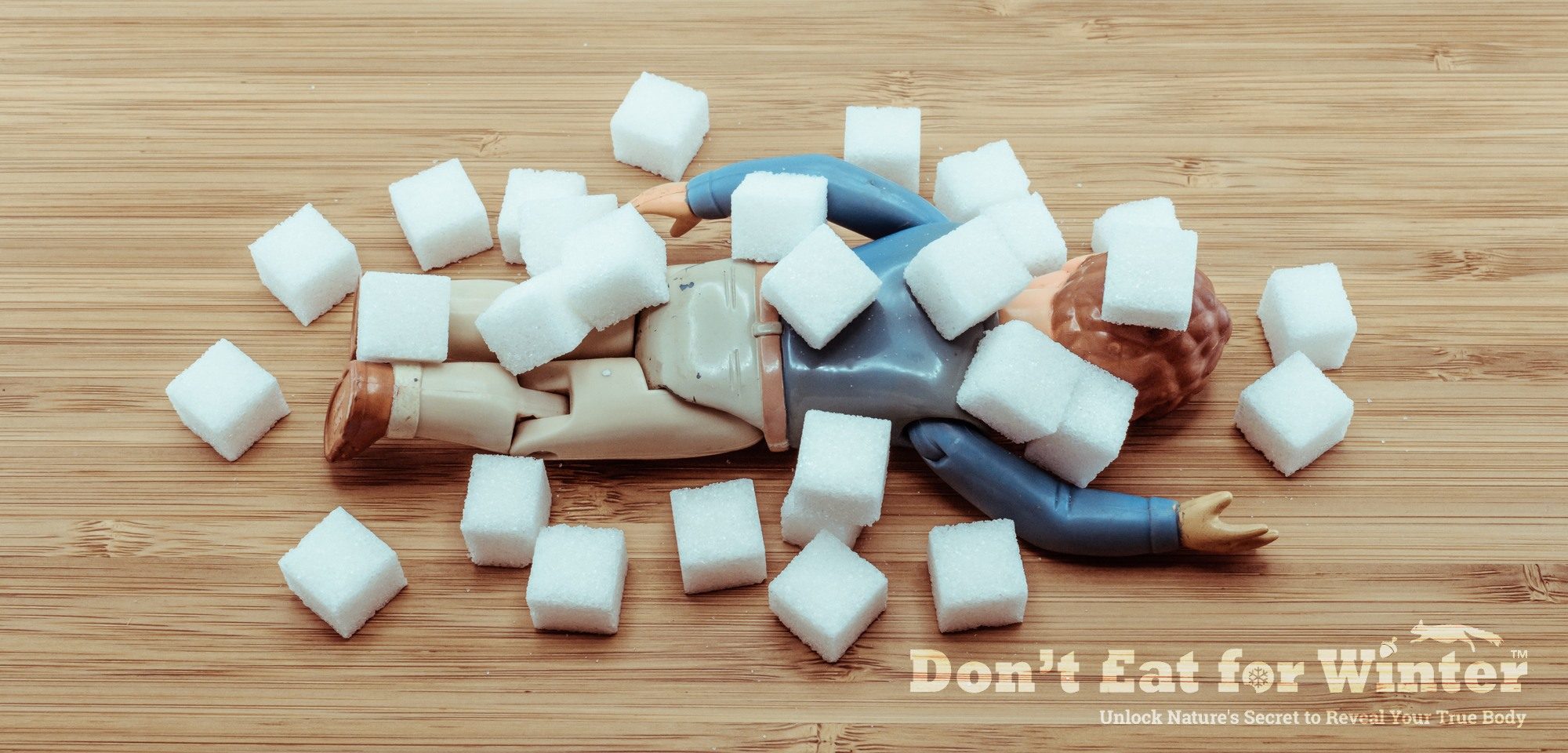

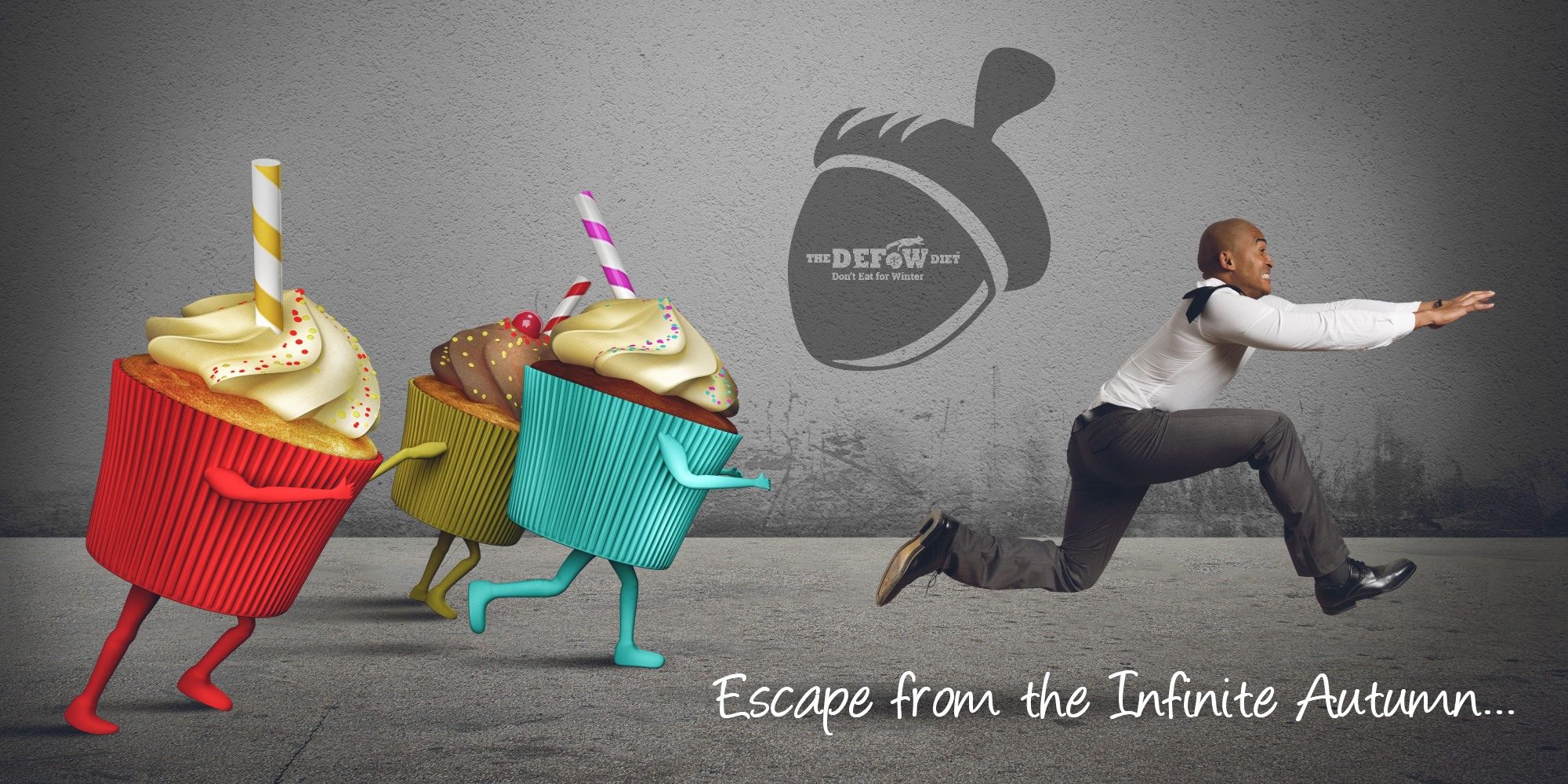
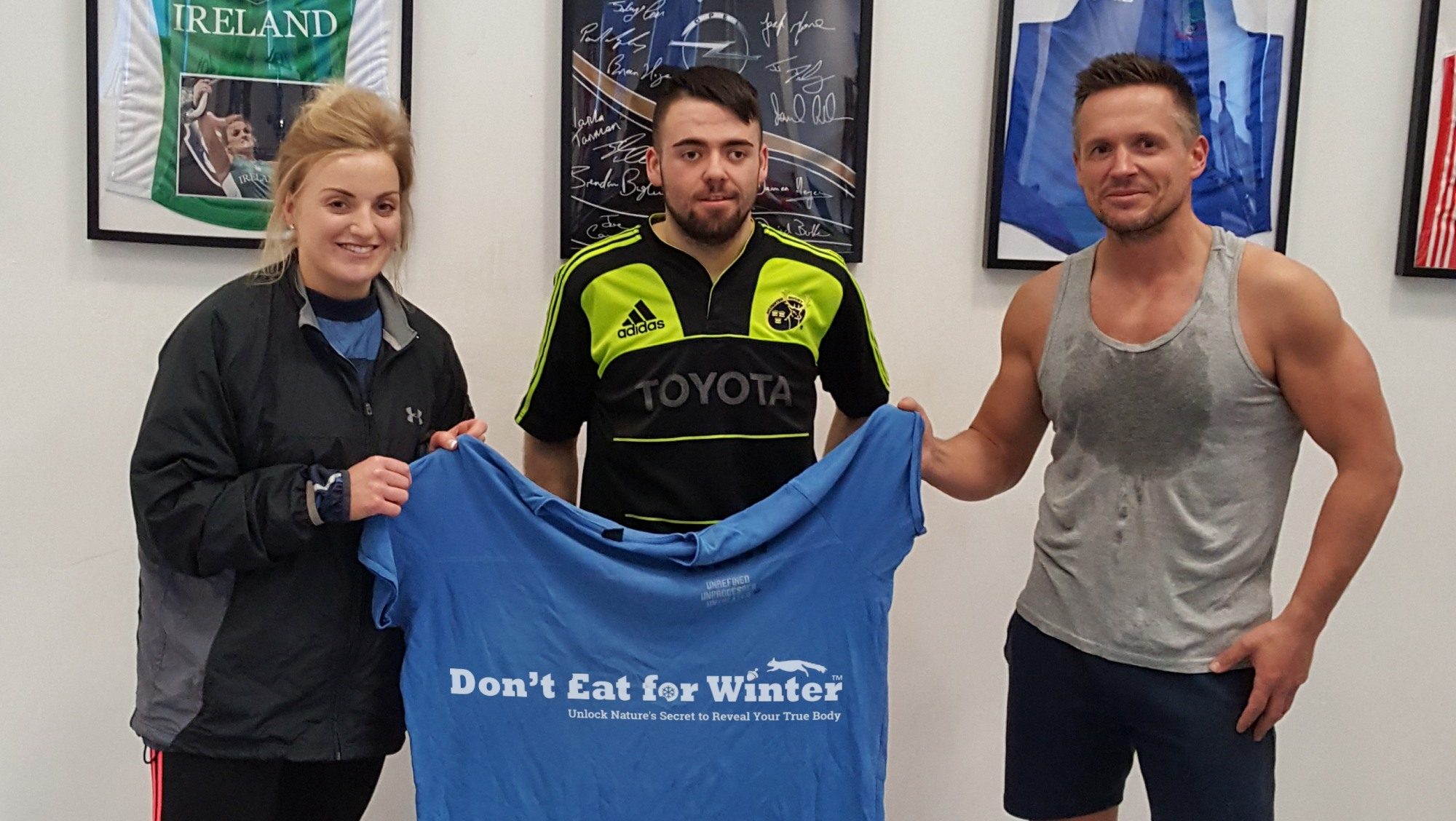
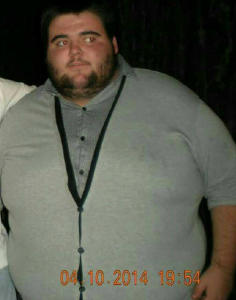 At the age of 19, Dylan weighed an astonishing 32 stone and 8lbs!!! Now, he weighs a mere 12 stone 13lbs. For European readers, that’s a transformation from 207kg to 82kg; and for American readers, 456 pounds to 181 pounds. That’s a total loss of approximately 19 and a half stone, 125kg or 275 lbs.
At the age of 19, Dylan weighed an astonishing 32 stone and 8lbs!!! Now, he weighs a mere 12 stone 13lbs. For European readers, that’s a transformation from 207kg to 82kg; and for American readers, 456 pounds to 181 pounds. That’s a total loss of approximately 19 and a half stone, 125kg or 275 lbs. To put it in perspective, he lost a stone more than I weighed at my heaviest and I was pretty hefty weighing in 18 and a half stone. That’s an entire me in terms of mass, made of pure fat, that now no longer exists. It’s difficult to fathom it’s so fantastic.
To put it in perspective, he lost a stone more than I weighed at my heaviest and I was pretty hefty weighing in 18 and a half stone. That’s an entire me in terms of mass, made of pure fat, that now no longer exists. It’s difficult to fathom it’s so fantastic.
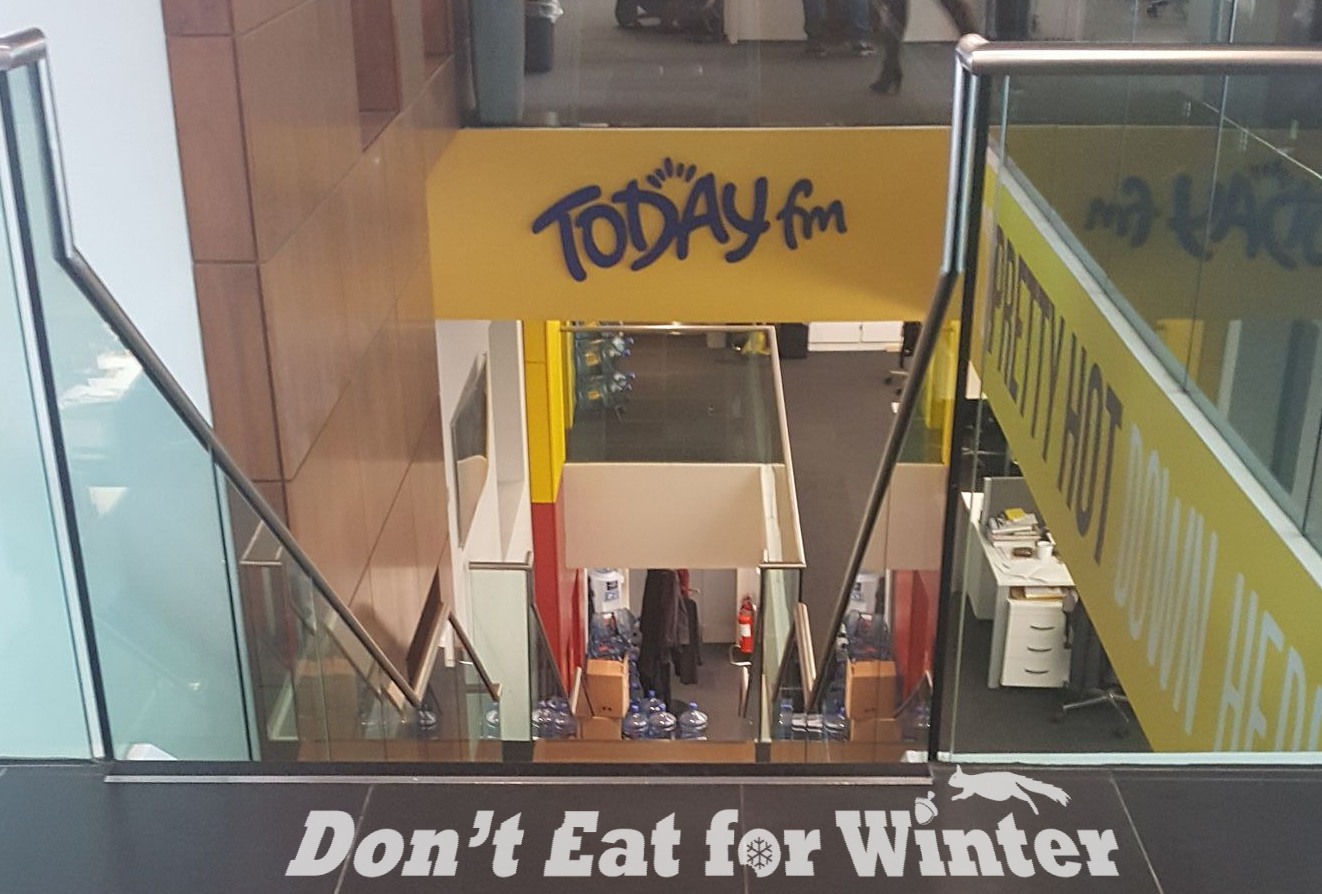
 To listen to the full interview here’s the link to the Don’t Eat for Winter interview with Dermot and Dave on the Today FM Site
To listen to the full interview here’s the link to the Don’t Eat for Winter interview with Dermot and Dave on the Today FM Site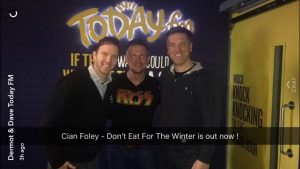 Finally, I got my photo with the lads and Dermot walked me out and said hello to Nicola who had been listening up at the reception area. Dermot is a top guy, and I really appreciate the lucky little break he gave me.
Finally, I got my photo with the lads and Dermot walked me out and said hello to Nicola who had been listening up at the reception area. Dermot is a top guy, and I really appreciate the lucky little break he gave me.